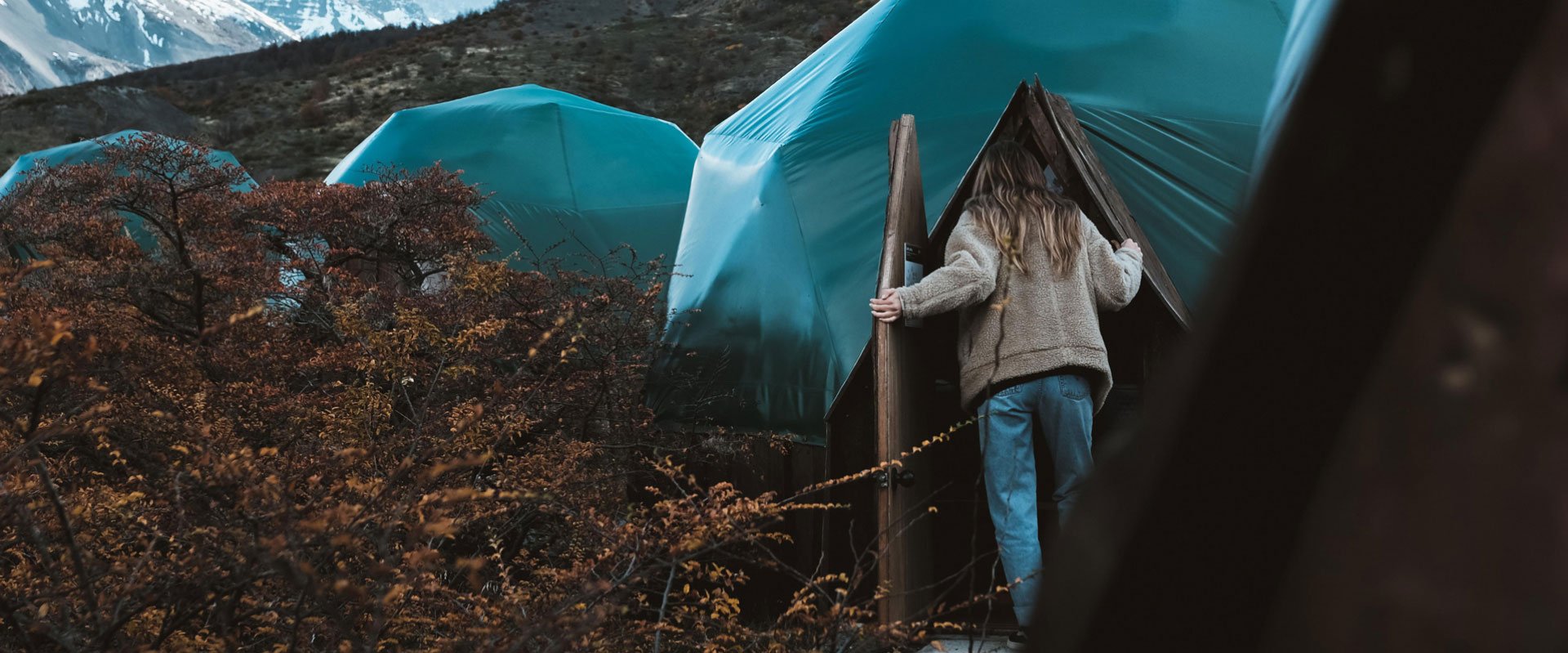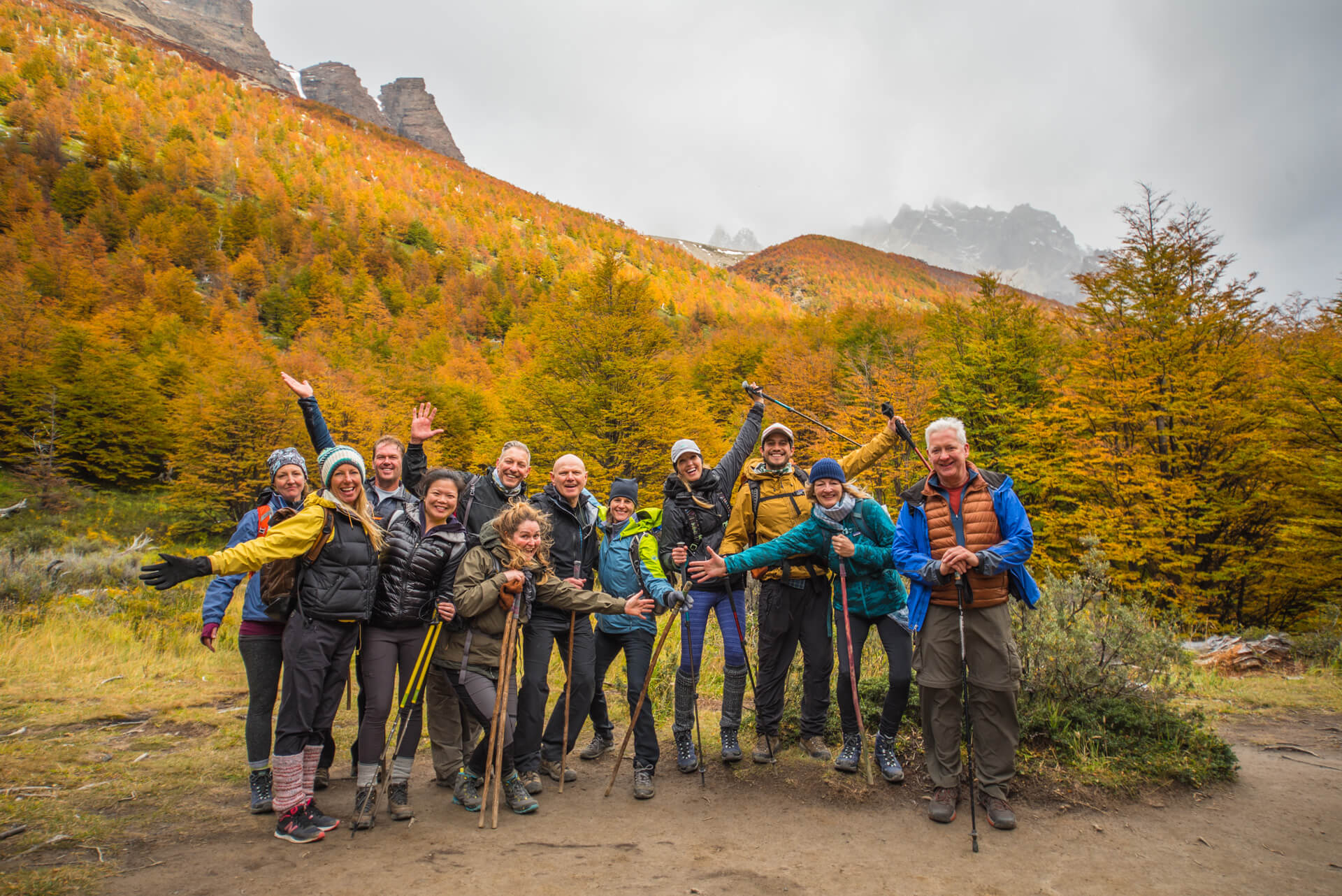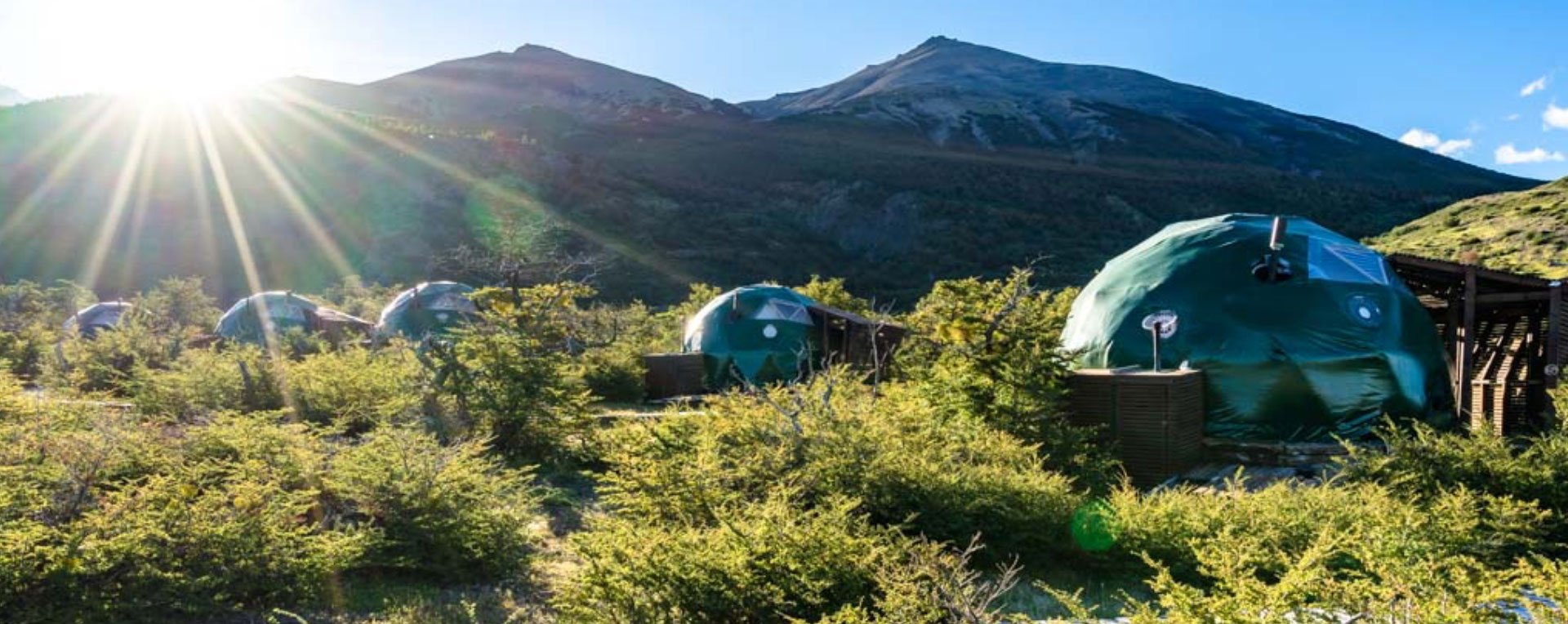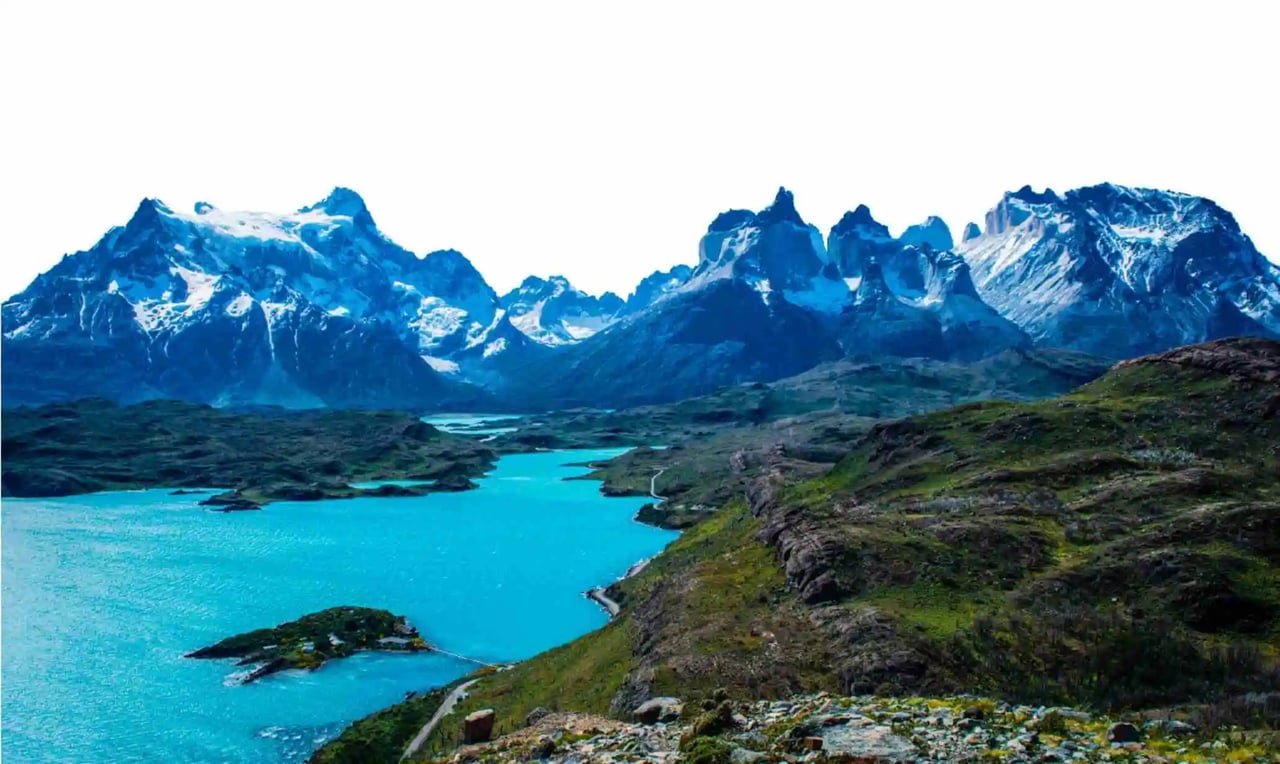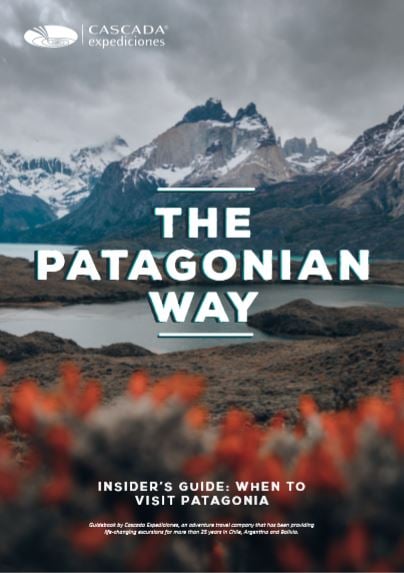Thinking about taking a break? Got the winter blues? Whether you are traveling to the other side of the world or to the other side of town, travel is one of the most eye-opening endeavors a person can make with the power to open the eyes of both the person exploring and the people they come into contact with. But travel can have it's dark side too and, given EcoCamp's firm position as one of the world's leading carbon neutral hotels, it makes sense that we put a moment aside to discuss with you the impact of your adventure.
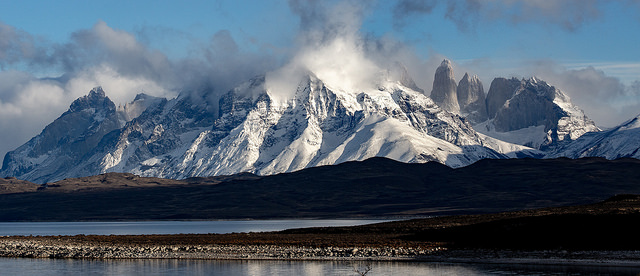
Travel's Bad Habits
Our lives are made up of tiny decisions. We make them every day, over and over, until eventually, they become routine. Sometimes our routines are harmless, but sometimes they can have a much greater impact than we imagined. Sometimes our habits become bad habits and, just like using dozens of plastic bags in the supermarket (which Chile is banning), the time eventually comes when we need to step back, analyze the situation, and put the effort in to form new behaviors until they become a new, improved routine.
And the Big Deal Is?
So what, exactly, is the big deal about travel? This recent study relating to the movement of carbon between countries as a result of tourism can help you answer that question. In a nutshell, it points out that:
- international travel is exceeding the growth of international trade, growing at an annual 3-5%.
- the carbon footprint is measured not only by carbon directly emitted but by the carbon involved in all commodities associated with tourism including shopping, food, and accommodation. Previous estimates (in 2005 + 2010) have not taken this into account and should not be considered as valid estimations; in addition, there have been no studies performed on a global scale.
- Visitors from/in high-income countries have a high demand for hospitality, transport, and goods thus generating energy-related CO2 emissions. Affluent travelers, therefore, increase per capita carbon.
- Consumption is moving carbon emissions much faster than decarbonization endeavors in tourism.
While this study is illuminating (especially as it's not just about air travel), it also makes the case that travel itself is not completely to blame for rising carbon emissions: as our society grows more affluent, so too grows our carbon footprint - no matter where we are (have a look here for ideas on how you can incorporate eco changes at home). It is exactly for this reason that EcoCamp has been so dedicated to pioneering sustainable travel and carbon-neutralizing programs which have an impact upon not only tourists but upon local communities too.
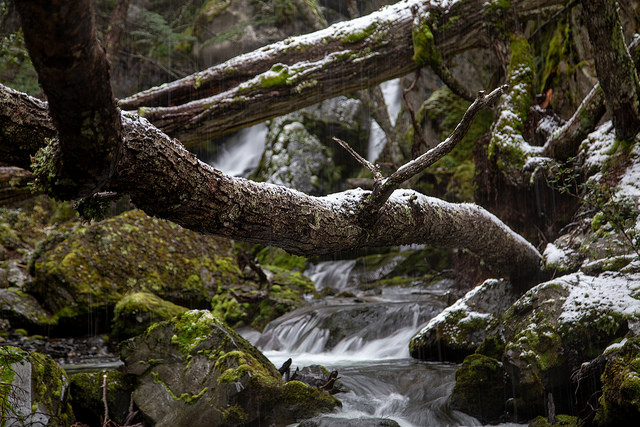
How to Reduce Your Carbon Footprint
1. Pick your transport
We all know that the way in which we travel has a big impact. While we can't help traveling by plane if we need to cover large distances, what about once we arrive? Can you get around walking? Can you rent a bike or take a bike tour? Most towns and cities in Chile and Argentina have a pretty decent public transportation system, and any situation where you can share your trip with others helps to reduce carbon emissions such as by booking a regular transfer to EcoCamp (remember, all our programs are offset).
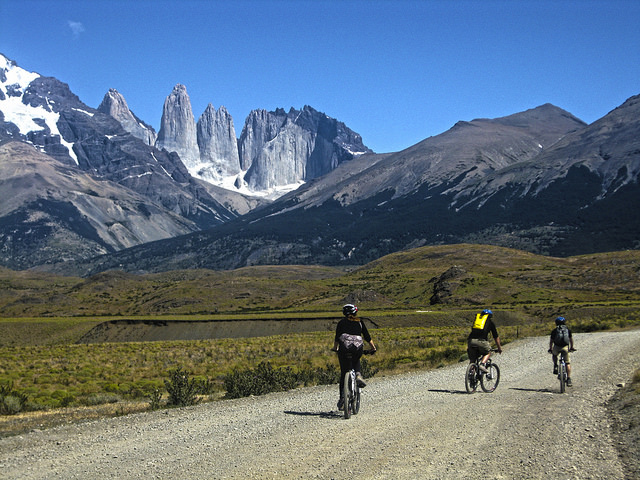
2. Offset your carbon footprint
This is a great way for you to step up and take responsibility. You can measure your carbon footprint here and then offset your emissions by taking part in an emissions project such as this one by Carbon Fund. One of the great things about booking with EcoCamp & Cascada Expediciones is that for the last ten years we have offset all of our carbon emissions, neutralizing 7.5 million pounds of greenhouse gases and supporting various forest conservation and renewable energy projects. Guests can sleep easy knowing that, just by traveling to EcoCamp, we cover all of the CO2 released on your journey to/from Punta Arenas!
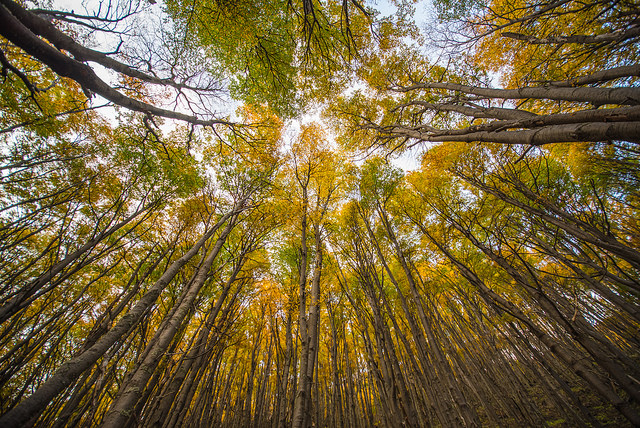
3. Reduce the plastic
Unfortunately, a world without plastic is unfeasible. This lightweight and malleable material has become so entangled in our modern lifestyles that it is unimaginable to picture our lives without it. While we cannot completely avoid it, we can make it a habit to use less plastic. For incentive, this report shows that all plastic is derived from petrochemicals sourced from gas and fossil fuels and that 50% of the resulting products are single-use only. At EcoCamp & Cascada Expediciones, we have a strict recycling policy in our offices and if we must buy plastic, we stick to buying the types that can be recycled: PET1, PEAD2, PEAD3, and PP5. To see what type of plastic your kids' toy (or whatever) is, it should be stamped with a number. If you see a 4, 6, or 7 - RUN! Or at least use it for as long as you can; this type of plastic cannot be recycled.
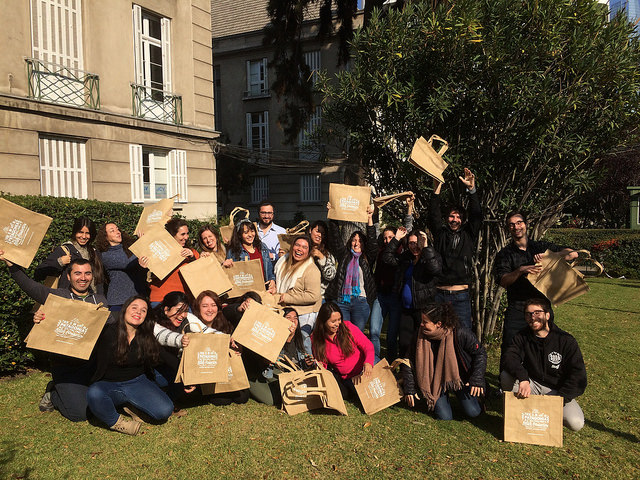
4. Buy local
It goes without saying that if you make it all the way to Patagonia, then it makes sense to experience it at its full. This goes for what you eat and for what you buy. You want to aim to be eating meals and stocking up on souvenirs that have been sourced nearby. For an idea of some awesome Chilean-made gifts, take a look here.

5. Don't go overboard in the hotel
We get it, we really do. We've all been holiday and felt like the rules from home no longer apply, having longer showers and using more towels than in our everyday life. However, this is part of the reason why our carbon footprint may increase when we're traveling, so in order to bring it down, we need to remember not to go overboard with the facilities. Is it necessary for you to have those lights on? Or for those towels/sheets to be changed? Are your clothes actually dirty?
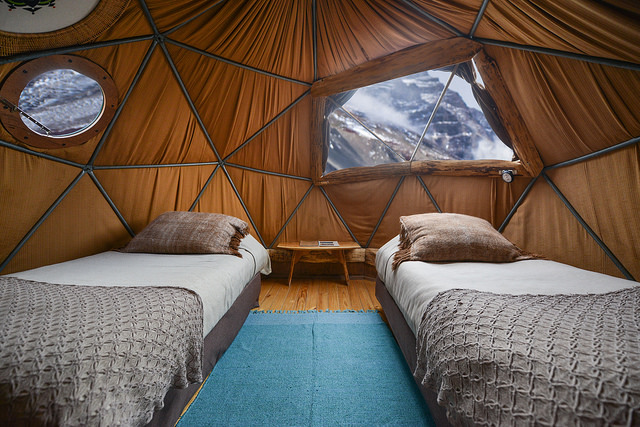
6. Group tours or private?
At EcoCamp, we believe that coming together as a community serves to heighten the uniqueness of the experience, especially once you've hiked together. And not all group tours mean rushed service and uncomfortable silences either. Most reputable companies cap the number of participants (for example, an EcoCamp excursion has a maximum of 12 guests to 1 guide) or have such fun outings (like this Santiago bike tour) that any awkward small-talk is kept at a minimum. Remember, Cascada Expediciones offsets all the nasties - in 2016 alone, Cascada offset 33,67 tonnes of C02!
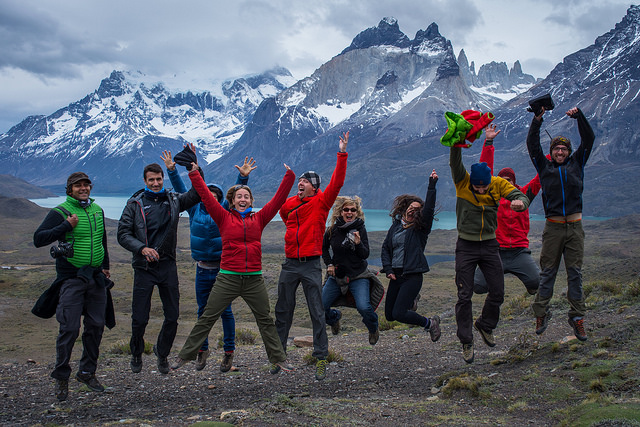
7. Pick the right time to travel
Knowing when to travel comes down to a bit of planning and a bit of common sense. Obviously, if you travel in a city during rush hour (in Santiago this would be between 7am-9am/5pm-8pm) then you are going to waste a lot of time and CO2 just sitting in traffic - and that's no fun for anyone. In Patagonia, high season runs between December-February and during this team both services and crowds are at their peak. For easier travel (for you and the planet), we recommend visiting places such as Torres del Paine National Park in quieter months such as March, April, September, October, and November because a) you have more of the Park all to yourself; b) the wildlife becomes more inquisitive; c) your chances of good weather is just as high as any other time; d) you allow Park resources to spread out.
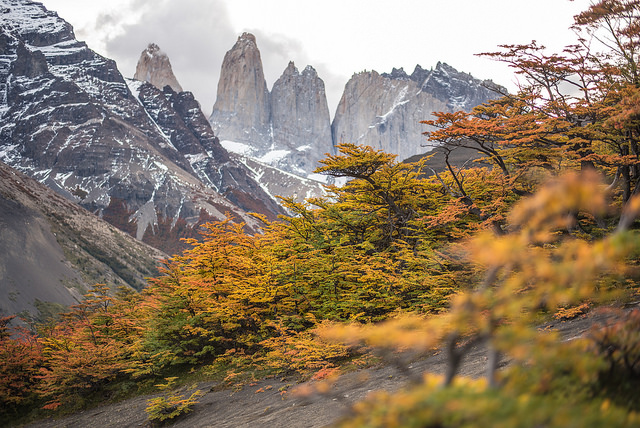
8. Reuse & recycle where you can
While it can be a little tricky to recycle while you're on holiday, it does work out in the long run to buy items that have multiple uses. For example, buying a fast-drying microfibre towel will help you save on washing and drying (as opposed to a regular, bulky towel), while products such as the versatile Buff headband have a number of functions and help you to save on weight. Have a read here to see what items you don't need in Patagonia.
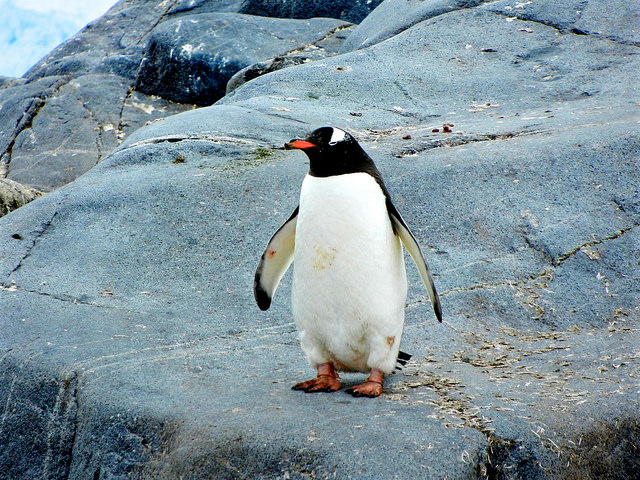
9. Choose who you travel with
Above all, if you pick your accommodation or tour operator based on their eco-credentials, then your small steps become much more powerful. But you need to make sure that they walk the walk and aren't just talking the talk i.e. no greenwashing. You can look to see what awards they've won, whether they are recognized internationally, whether they are members of external, unbiased organizations (such as the B Corps or The Long Run), and whether they have external certifications (EcoCamp has the ISO4001 for waste management, for example). What also helps? If they use local, biodegradable products, walk instead of drive, have sustainable energy sources, walk instead of drive, or contribute to local charities or initiatives (such as the Torres del Paine Legacy Fund).
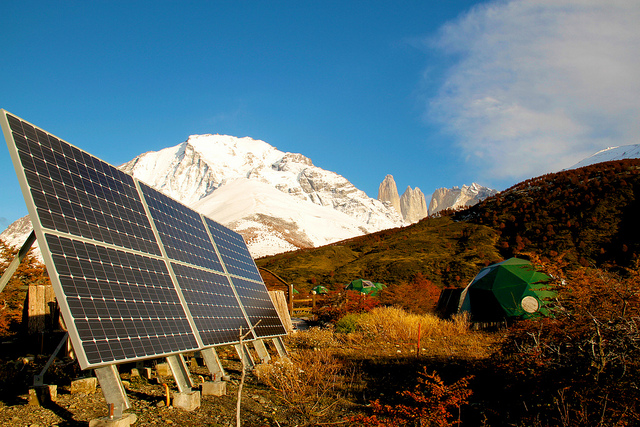
10. Observe, don't interact
Your footprints can do much more than just put carbon into the air. Remember how Torres del Paine is an incredibly fragile ecosystem, the result of thousands of years of evolution? That isn't to scare you off visiting, but to inform you of the facts so that you make informed decisions.
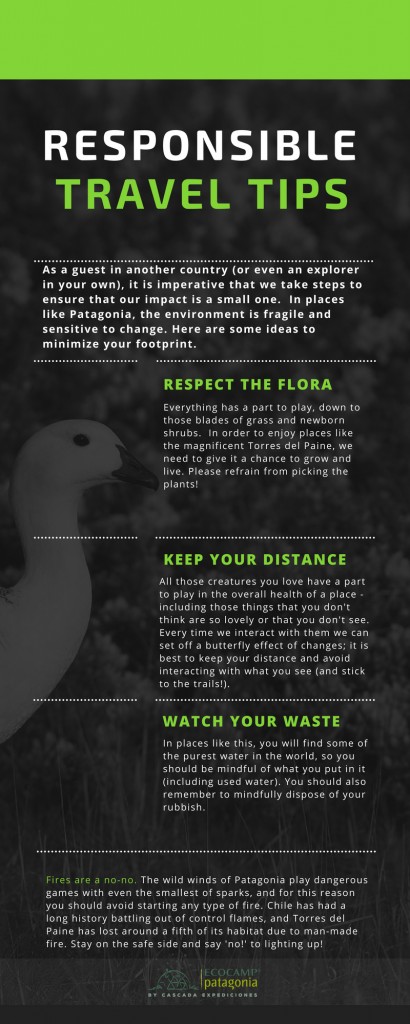
Do you want more information? Visit cascada.travel and learn about our programs

